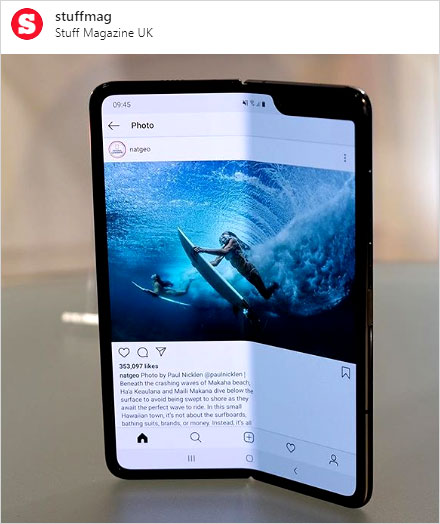
Since the advent of Pong back in 1958, the gaming industry has come a long way. The current crop of next-generation consoles deliver frighteningly realistic gaming experiences which are a far cry from the black-and-white paddles and blobs we used to enjoy on screen some years ago. By the same token, the mobile phones we use today are vastly different to the clunky, bulky devices we used to carry around back in the 1990's. According to App Annie, mobile gaming was the fastest growing gaming sector in 2018 and is showing no signs of slowing down going into this year. But what's next for the future of gaming on your mobile device?
Google Stadia
For those who don't keep up with the latest tech news, Google are set to launch their video streaming service later this year (November 2019 to be precise). Bethesda's latest offering in the Doom franchise was the first game to be confirmed for the service and a recent demo at gaming festival E3 showed both the promise and pitfalls associated with cloud based gaming. From a technical perspective, Google Stadia is impressive - the service will hold a players place for up to 10 minutes after an unexpected disconnection for example, meaning that you don't have to worry about lost progress. On the flip side, the fact that the service is so heavily dependant on the strength of your internet connection has made some critics question whether the service will be worth paying the money for.
Foldable Mobile Phones
At present, the main two foldable phones are the Huawei Mate X and the inventively named Samsung Galaxy Fold. When closed, both devices work as regular (although chunky) mobile phones with all the capabilities of the modern smartphone. It's fair to say that mobile games such as Football Manager Touch and roulette games feel infinitely more playable on a tablet - themed games such as Deal Or No Deal Roulette rely on a vibrant display and an appropriate aspect ratio in order to make use of the games features and bonuses. With a much bigger canvas to work with, talented developers are likely to capitalise on this new technology and mobile game design will hopefully expand to fill the 8 or so inches that foldable phones give you.
5G Internet
Essentially, 5G is the next stage in evolution of the mobile internet. In terms of gaming, faster mobile internet will result in less congested networks, higher download speeds and all being well, console-grade graphics on the go. One of the biggest complaints that mobile gamers have relates to lag and waiting time when it comes to downloading large files. In addition to this, faster mobile internet will help the much anticipated problems of platforms such as Google Stadia and PS Now; this will then create a library of games not too dissimilar to the one Netflix has in terms of the television and film industry.

The Future of Mobile Gaming Is Now
With the speed that the mobile gaming industry moves at, talk of the future is often discussed in months as opposed to years. It's virtually impossible to predict the success (or downfall) of any given development but one thing we can be certain of is that mobile gaming is here to stay and has the potential to seriously rival any other platform if the aforementioned developments turn out the way they're supposed to.

 Alcatel Hero
Alcatel Hero  Samsung Galaxy S24+
Samsung Galaxy S24+  Xiaomi Mi 10T
Xiaomi Mi 10T  Xiaomi 14 Ultra
Xiaomi 14 Ultra  Samsung Galaxy A14 5G
Samsung Galaxy A14 5G  LG G8S ThinQ
LG G8S ThinQ 

